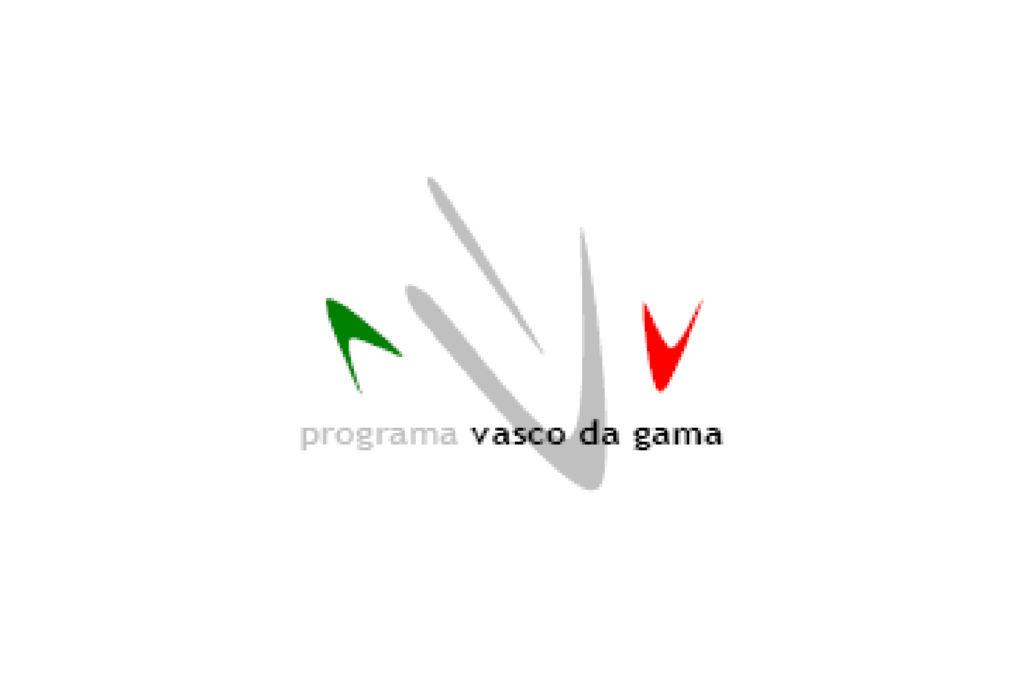Outgoing
Here you can find relevant information on International Mobility opportunities available to IPCA students and recent graduates, through cooperation agreements, programmes and academic mobility projects.
International Mobility, in the context of higher education, consists of all Learning Mobility that offers students the possibility of carrying out a period of study/internship in another foreign university/company/organisation with academic recognition (as part of the IPCA study programme) or without academic recognition (in the case of extracurricular internships or internships for recent graduates).
There are two main types of activity:
Mobility for Studies: period of study at another European partner university;
Mobility for Internships: curricular, extracurricular or professional internship in a business/applied environment.
In addition to benefiting from a rewarding academic and personal experience, mobility students also acquire a set of professional skills that will contribute to their development and to the construction of a Europe that is increasingly united in its cultural, linguistic and educational diversity.
+ Benefits of Mobility:
– Personal and intellectual growth
– Knowledge of other cultures
– Improvement of foreign language(s)
– Contact with diferente working methods and new technologies
– Greater future employability, not only in foreign markets, but also national ones (increasingly internationalised)
– Better adaptability, flexibility, autonomy, initiative and entrepreneurial spirit
– Expanded network of contacts
Procedures and applications
Studies
Eligible participants: All students who are formally enrolled in a regular 1st or 2nd cycle course at IPCA leading to an academic degree can apply. 1st cycle students must have completed their first semester of university studies by the time the mobility programme begins. It is important to note that there are courses/areas that impose additional eligibility/participation criteria, such as specific periods for mobility.
Conditions: Mobility students are exempt from paying tuition fees or other registration fees at the destination university [1], as long as the mobility is carried out under a Mobility Programme or Cooperation Agreement that provides for this exemption. They are, however, obliged to continue paying tuition fees at their home Higher Education Institution, i.e. IPCA.
However, some fees may be charged, such as school insurance, student union dues, use of photocopiers, laboratory products, etc. on an equal basis with local students.
Destination institutions: This programme is based on inter-institutional agreements that IPCA’s schools have signed with various European universities, which foresee the exchange of students and teaching staff. You can see in the list of Partner Universities (ESD, ESG, ESHT, e EST) which higher education institutions in your area have signed agreements with IPCA. It is important to note that you should limit your choices to partner universities in your field of study and that some agreements may allow mobility for specific study cycles.
Duration: In general terms, the period of internship at another European Institution/company can last a minimum of two months and a maximum of twelve months.
Scholarships: Being a mobility student does not necessarily mean receiving a scholarship. However, all students selected to undertake a period of mobility for studies automatically become candidates for a Scholarship provided that the Host Institution is eligible.
Duration: In general terms, the period of study at another European University can last a minimum of two months and a maximum of twelve months. Scholarships: Being a mobility student does not necessarily imply receiving a Scholarship. However, all students selected to undertake a period of mobility for studies automatically become candidates for a Scholarship provided that the Host Institution participates in a funding programme in which IPCA also participates and belongs to its list of Partner Institutions. The grants’ amount varies according to the destination country and the duration (in number of days) of the exchange. It should be emphasised that mobility grants are not subsistence grants, but mobility grants, which are intended solely to bridge the gap between the standard of living in the country of origin and the host country. Therefore, Erasmus+ grants are not intended to cover all of the student’s normal living expenses, but rather the additional expenses resulting from a period of training in another country. The value of the grants is determined annually.
Applications: Before applying, you should find out which universities you would like to go to. To do this, you can consult the respective websites on the list of Partner Universities, where guides and information packs specially prepared for foreign students are usually available. In addition, you should liaise with your Mobility Coordinator at IPCA in order to obtain information/guidance on the academic feasibility of undertaking a period of mobility at the university(ies) of your choice, safeguarding any academic and language requirements.
Formulário de candidatura: https://forms.office.com/e/JzvQs1sear
Application deadlines: 1st semester – 15th February
2nd semester – 15th October
Internships
Eligible participants: All students who are formally enrolled on a regular IPCA course can apply. Students from any cycle of studies (TESPs, Bachelor’s and Master’s degrees) can apply provided they have proof of their enrolment at IPCA.
In the case of TESPs, curricular internships are only possible in the 2nd year of the course.
Types of Internships: The Erasmus+ programme allows for three different types of internship:
Curricular Internships –academically recognised internships within the scope of their course and integrated into the work developed for the corresponding curricular unit (Internship/Project/Thesis);
Extracurricular Internships – internships carried out without academic recognition while you are a student at IPCA;
Internships for recent graduates (bachelors and masters) – internships without academic recognition that must be completed within one year after the conclusion of your course at IPCA. Please note that the application for these internships must be submitted while you are still enrolled at IPCA. The applicant must also garantee that they have conclued their Study Cycle and that their Diploma has been issued.
Summer internships: https://ipca.pt/ipca/unidades/upraxis/gabinete-de-relacoes-internacionais/estudantes-out/programa-erasmus/estagios/estagios-de-verao-2023/
Destination institutions: You can apply to any of the 28 countries of the European Union, Iceland, Liechtenstein, Norway, Macedonia and Turkey (excluding Portugal). The host institution may be a company or research centre in one of these countries, provided it is recognised and approved by its Mobility Coordinator. IPCA does not need to sign any kind of agreement or protocol for the mobility to take place.
The following types of organisations are not eligible as host organisations for student mobility for internship purposes:
– EU institutions or other EU bodies, including specialised agencies (an exhaustive list of these bodies can be found on the website – https://europa.eu/european-union/about-eu/institutions-bodies_pt);
– organisations managing EU programmes, such as national Erasmus+ agencies (to avoid possible conflicts of interest and/or double funding).
Duration: In general terms, the period of internship at another European Institution/company can last a minimum of two months and a maximum of twelve months.
Scholarships: Being a mobility student does not necessarily mean receiving a scholarship. However, all students selected to undertake a period of mobility for studies automatically become candidates for a Scholarship provided that the Host Institution is eligible.
The grants’ amount varies according to the destination country and the duration (in number of days) of the exchange. It should be emphasised that mobility grants are not subsistence grants, but mobility grants, which are intended solely to bridge the gap between the standard of living in the country of origin and the host country. Therefore, Erasmus+ grants are not intended to cover all of the student’s normal living expenses, but rather the additional expenses resulting from a period of training in another country. The value of the grants is determined annually.
Application conditions: Before formalising your application, you must express your interest in taking part by filling in the pre-application form available at https://is.gd/IPCAErasmusEstagios
The complete application, together with all the necessary documents and the start and finishing dates of the internship, must be submitted to the International Office at least two months before the start date of the internship. Please note, however, that the award of the scholarship will depend on the availability of funding when it is confirmed, so the earlier you formalise your application, the greater the probability of funding.
Once you have filled in the form, you must submit the following documents two months before the start of the internship, the latest:
– Photocopy of your European Health Insurance Card (EHIC)
– Detailed curriculum vitae (CV), in English or in the language of the selected country (Europass format recommended)
– Letter/email of acceptance from the host institution, respecting the following requirements: – indicate the duration of the internship;
– identify the name and contact details of the supervisor;
– a brief description of the work programme to be carried out;
– indicate the amount of remuneration/support to be awarded (if applicable).
– Learning Agreement for Traineeships duly completed, validated and signed by the host institution.
– In the case of internships for recent graduates, proof of degree completion must also be submitted as soon as possible.
Application deadlines: Applications are open continuously
Blended Intensive Programmes (Programas Intensivos Mistos) – BIP
The Blended Intensive Programes (BIP) are short and intensive programmes that use innovative learning, teaching and training methodologies, through research and the acquisition of knowledge based on challenges, aimed at students and staff, mixing physical and virtual components. They are developed and implemented by a minimum of three Ihigher education institutions (HEI) from at least three EU State Members and third countries associated with the Programme and that are financed by the mobility programme Erasmus+:
With and innovative and inclusive structure, the BIP offer one additional mobility opportubnity, in particular for students that do not have the chance ti take part in a long term mobility (semester or academic year).
During the BIP, groups of students and staff will participate in a short term physical mobility (5 to 30 days) abroad, combined with a mandatory virtual component (without a limit to its duration) facilitating the collaborative learning and work exchange.
The students selected to participate in a BIP, are illegible for a short term Erasmus+ scholarship.
The selection of IPCA students that have applied to participate in a BIP will follow the below presented order of criteria:
- Never having participated in a BIP previously
- Compatibility of the area of the BIP and the area of studies attended by the student
- Order of application (according to the application submission date)
Forms
Erasmus+ Programme

- Certificate of Stay
- Plano de Reconhecimento Académico (PRA)
- Learning Agreement for Studies
- Changes to the Learning Agreement
- Learning Agreement for Traineeships
- Changes to the Training Agreement
- After the Mobility
Vasco da Gama Programme

Academic Recognition
For further information, please contact the IO.
.



